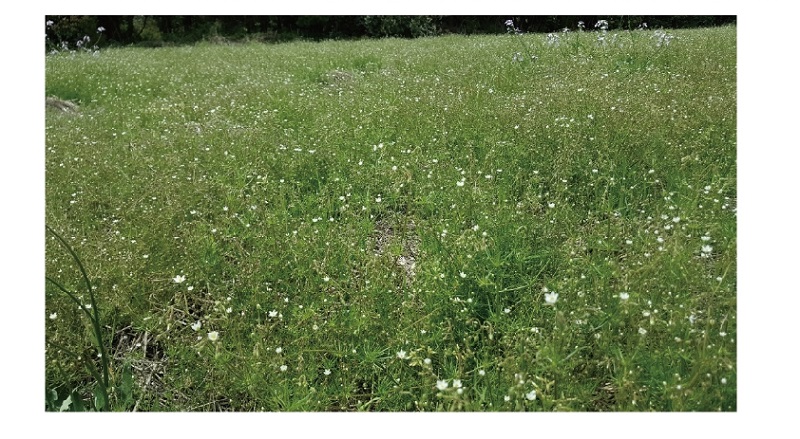Abstract
Corn Spurrey (
Figures & Tables

Fig. 1. Outbreak of a foreign weed corn spurrey () in Jeju Island.
Heonseop Eom1 Sang Eun Oh1 So Yeon Kim1 Se Jin Park1 Minji Hong1 Songmun Kim1 Ki Hwan Hwang2 Yong Ho Lee3 Sun Hee Hong3,*
1School of Natural Resources and Environmental Sciences, Kangwon National University, Chuncheon 24341, Korea
2Moghu Research Center Ltd., Daejeon 34115, Korea
3Department of Plant Life and Environmental Science, Hankyong National University, Ansung 17579, Korea
Corn Spurrey (

Fig. 1. Outbreak of a foreign weed corn spurrey () in Jeju Island.